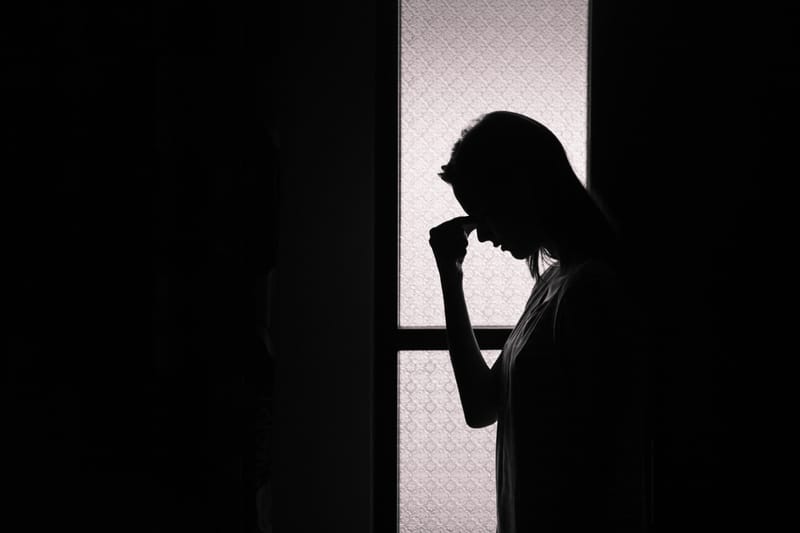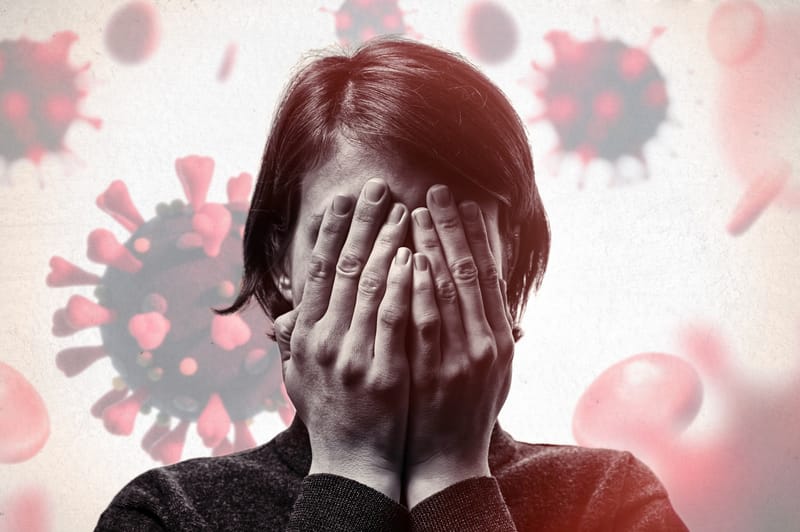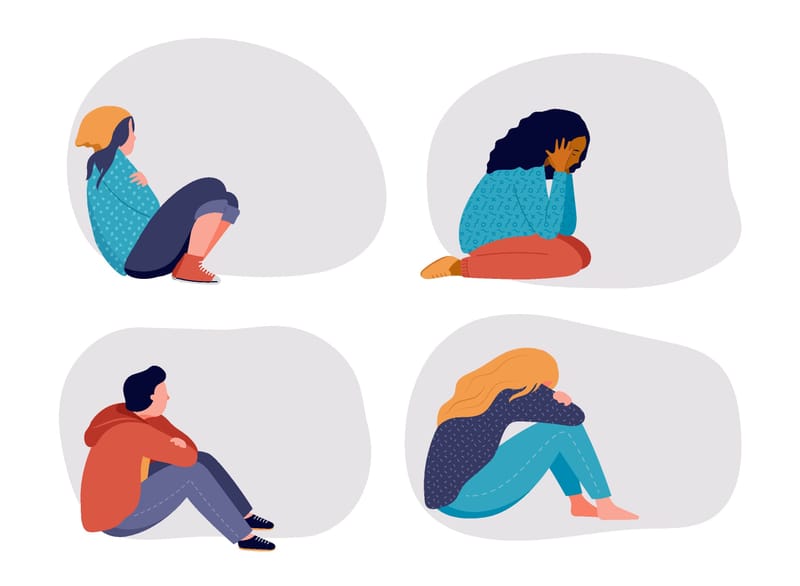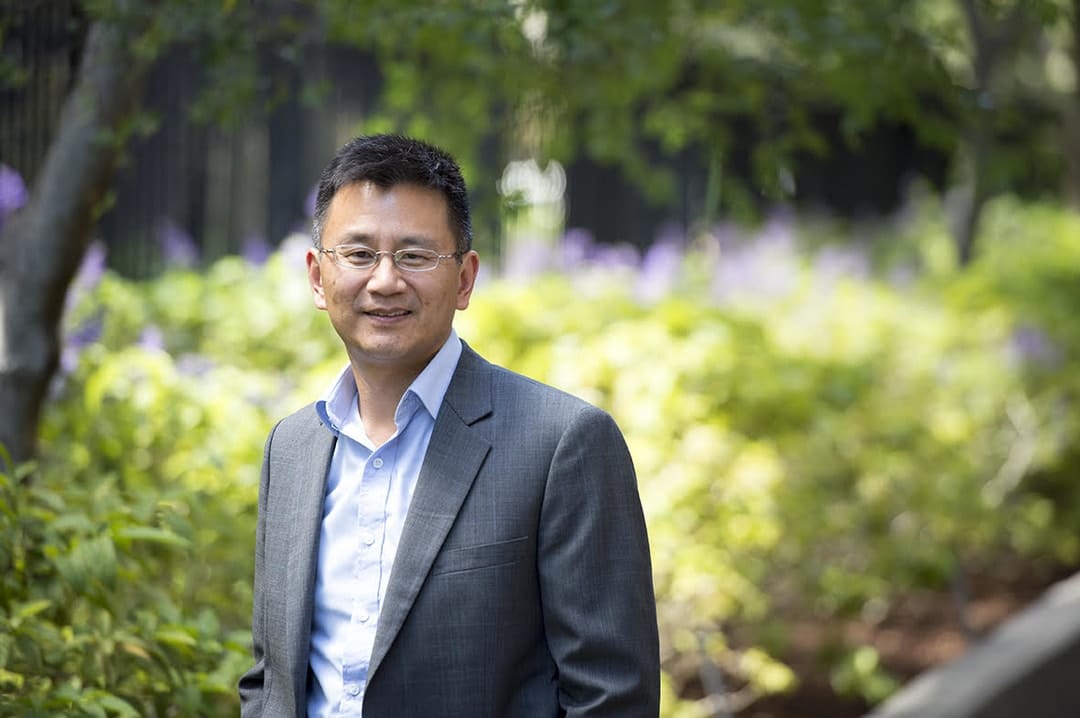
At the gruelling height of Melbourne’s COVID-19 crisis – in mid-winter during the second wave, with hundreds of new cases a day – Professor Allen Cheng quietly volunteered for some grassroots public health education.
Monash University’s Professor Cheng is widely recognisable as Victoria’s Deputy Chief Health Officer standing alongside Premier Daniel Andrews and Chief Health Officer Professor Brett Sutton, to talk to the public, via the media, through the emergency and through Melbourne’s pandemic lockdowns, among the longest and strictest in the world.
Read more: What are coronaviruses, and where do they come from?
He was under immense pressure, working seven days a week over very long hours as the deadly virus kept appearing all over the state, and contact tracers struggled to patch together transmission patterns.
The community was shell-shocked, and sections of a supercharged media had mobilised to challenge the state government’s approach to masks, lockdowns, public housing, borders, the police, army and hotel quarantine, essential work, and the faltering economy.
The family man
Professor Cheng, 50, has three young children, aged eight, nine and 11. His daughter’s school (she’s in grade four) asked if he could do a question-and-answer session on COVID over Zoom with her class. He had a bit on – like trying to prevent rabid infection rates and more deaths with unprecedented, highly restrictive measures. But he volunteered his time.
“My kids had a challenging year,” he says. “I tried to protect them from everything I was doing and what people were going through, but I did think this was important. Kids have very interesting questions, very different from journalists. ‘How do people catch it? Will my pet get COVID?’”
It was a light and generous moment in an otherwise gruelling year for the Professor of Infectious Diseases and Epidemiology at Monash/Alfred Health. He admits that before being recruited to the state’s COVID-19 response, he had never met a politician or talked to a non-science journalist. Then, suddenly, he was mixing with both, live on television, radio and online, while advising on a new virus strain that his new boss, Premier Daniel Andrews, repeatedly called “wicked”.
The learning curve
“I am a hospital clinician,” Professor Cheng says. “I haven’t been involved in media conferences of this sort before. It was very challenging being in the firing line. These were political journalists, and it became a political story in many ways so that was very unfamiliar to me.
“The advice I got was, ‘Answer the question. Don’t make anything up – if you don’t know the answer, say you don’t know the answer.’ The third thing was ‘Don’t be the story. It’s not about you.’ Of course it’s not. It’s about public health.”
Professor Cheng, however, is smart enough to understand that when a community is under immense stress, it has to burst through somewhere. Scapegoats were bound to be sought out.
Professor Sutton – the Chief Health Officer called to give evidence in the inquiry into the disastrous Melbourne hotel quarantining – fell victim of this to a degree. He and the Premier ("#DictatorDan") became the faces of what sections of the community perceived to be punitive, unnecessary restrictions and bad science.
Professor Cheng – a quiet, cheerful medical scientist – was mostly spared, but he still had to put himself out there.
“It was challenging,” he says, “particularly at the start, because I didn’t have a feel for what they [the journalists at the daily briefing] would ask or what the context might be. I started getting the sense they were asking me questions they had already asked Brett or the Premier to find some difference. It’s a journalistic technique in the way questions are asked.
"They are very clever. You might have seen the Premier bail me out a bit in the early ones; he would take a question if I was struggling. I realised what a skill it is, to be able to do that.”
“One thing I didn’t understand, but do now, is how big government actually is. There are huge teams of people, whole divisions doing separate things. Which means things can happen relatively quickly when they need to.”
His long-time colleague Dr James McMahon – the head of clinical research in infectious diseases at Monash/The Alfred – says Professor Cheng was ideal for the role despite his learning curve with the media pack.
“He is very much a quiet achiever. He's unbelievably hard-working – an absolute 'Energiser Bunny' in terms of keeping an enormous group of things going at once. He is unflappable. I’ve never seen him cranky or upset. He's universally liked.
“But most of all, he's unbelievably bright. He's always the smartest person in the room. If you want someone running the COVID response, you want someone very intelligent, and someone who can absorb enormous amounts of information and concepts, and crystallise them.”
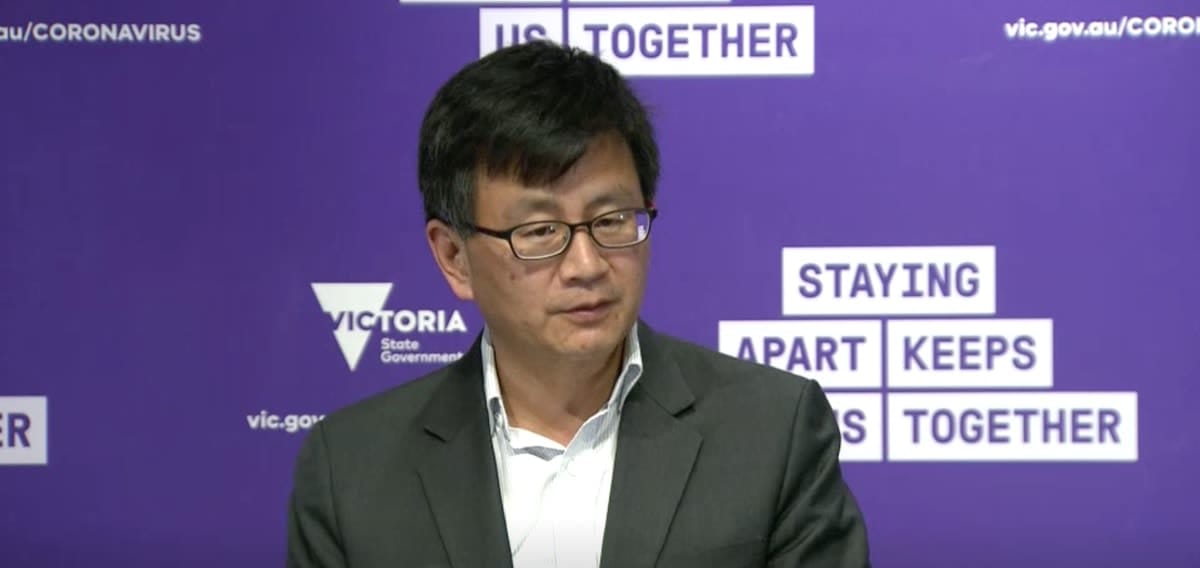
The medicine man
Alongside his Monash/Alfred roles, Professor Cheng, a biostatistician as well as epidemiologist, is president of the Australasian Society for Infectious Diseases (ASID), chair of a Therapeutic Goods Administration (TGA) advisory committee for vaccines, and co-chair of a group that advises the federal government on immunisation.
Although he had been involved in the public health response on the Australian Health Protection Principal Committee since late January, he officially began his COVID role with the state government on 23 July, while Melbourne was in stage three lockdown, with only four legal reasons to leave home.
The previous day, Victoria recorded 403 new cases, and five people died. More than 350 cases were linked to public housing tower outbreaks, while there were active clusters throughout aged care in the northwestern suburbs, an Islamic school, meatworks and childcare centres.
The total number of deaths was 49; 40 were in intensive care. Masks were compulsory, but some industries were still open.
“We weren’t entirely sure if the masks would have an effect,” he says. “If they did, we could have avoided further lockdowns, but by the next week it didn’t look like it was having the desired effect. So we needed the circuit-breaker.”
The restrictions
The circuit-breaker came a week or so later, at midnight on 2 August. Victoria entered a "state of disaster" and stage four restrictions. Almost 700 new cases had been recorded between 1 August and 2 August, and the death toll was already at 123.
Stage four meant further restrictions on home visits, a curfew from 8pm until 5am, one hour of exercise a day within 5km from home, golf and fishing banned, and weddings and funerals limited.
“I know how much Victorians want to go back to some semblance of normal,” said the Premier, even though better days were still months away. “They want to be able to get a beer with their mates. To drop round and see mum. And they definitely want an end to these daily updates and their grim new milestones. Our health experts tell us the measures we’ve introduced are working. But too slowly. The current rate of community transmission is far too high.”
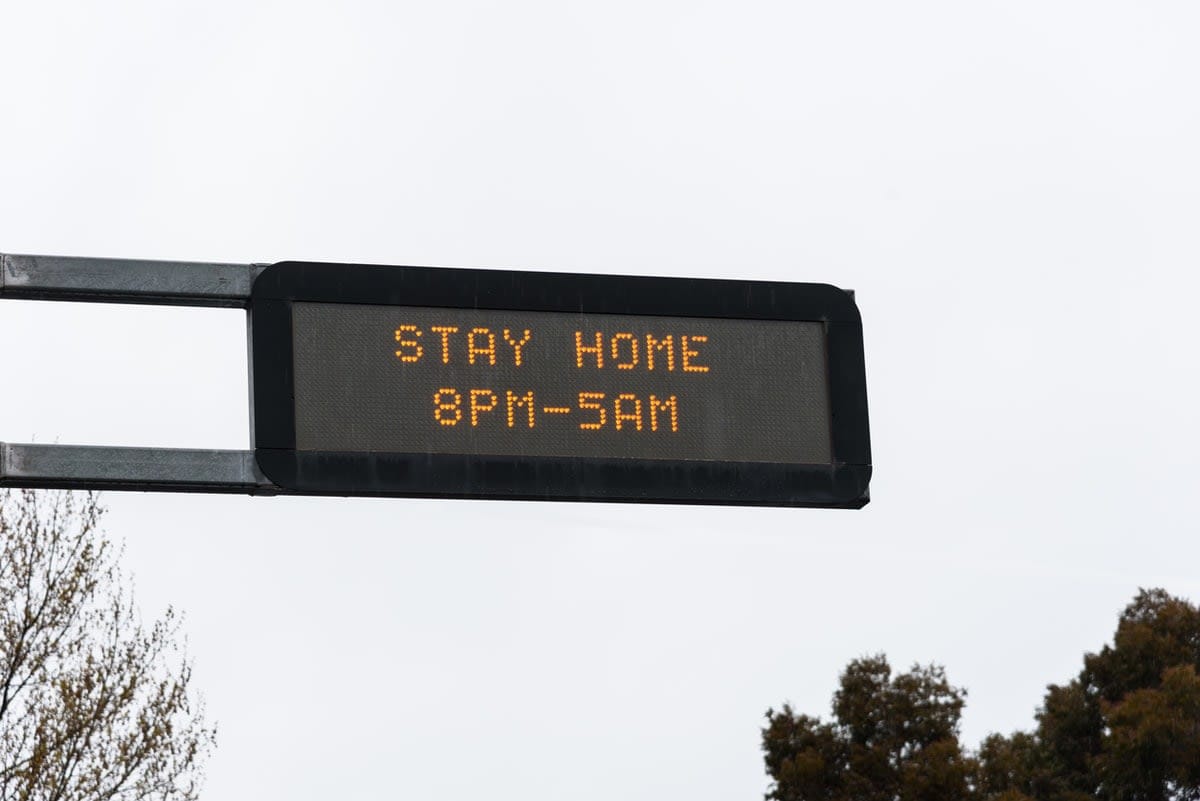
Professor Cheng said this significant upgrade of the lockdown was devised on 30 July to be implemented on 2 August.
“By the 30th it was starting to get pretty evident that we needed to do more. It was our job as the public health team to give that advice to the Premier.”
It was a dramatic turnaround. The Premier and Professor Sutton had previously stood by the existing policy settings. Professor Cheng (among others in the public health team) was convinced contact tracing needed to be improved and further restrictions imposed to stop transmission. He had a late-night video call with the Premier, according to The Age, which was “a pretty intimidating moment … it was literally the first time I had met him.”
Professor Cheng says any state premier would need to be “pretty sure” if you decide to – in effect – shut down a state or territory.
“It’s an expensive decision, and it’s understandable that he questioned it.” It’s also a politically-charged decision, but, he says, “it didn’t take long”.
“One thing I didn’t understand, but do now, is how big government actually is. There are huge teams of people, whole divisions doing separate things. Which means things can happen relatively quickly when they need to.”
The central idea, he says, was how to shut down but still make life liveable for the population.
“Case numbers were going up very quickly – 400, then 600, then 700 – so it was pretty evident that a lockdown would be required. We had to do something. It was just a question of how much. What is the tightest lockdown we can have that is compatible with a functioning society, and won’t cause riots? Tightest in this context means shortest time possible.”
“We are paid to be anxious. We need to make sure everyone is looked after.”
Stage four lasted from 2 August until 13 September, after being extended for two tense weeks. Professor Cheng says in hindsight this transition out of lockdown was harder than going in. The pressure had increased because the community was restless and losing patience.
“Mid-to-late September into October was hard,” he says. “Everyone was saying, ‘We have only ten cases!’, but we had that pressure to hold the line and ease out. People were asking, if the numbers were so low, why were they still sitting at home? By that time, we had a sense that people were getting cranky and were losing tolerance. The licence we had to say, ‘You still need to stay at home’ was starting to wear thin. We couldn’t have held it for too much longer.”
In the end, of course, Victoria’s public health response – while strict and highly regulated – worked, despite huge problems early on. Victorians will probably be able to celebrate Christmas in a normal manner.
“If we opened back up too early,” Professor Cheng says, “it would come back, like what we are seeing in the UK at the moment.”
The runner
He says he released the pressure of a relentless, high-stress job by running – “I’m a runner”. He ran 7km to work at the Alfred sometimes, and home. On weekends he sometimes found time to run; when he was only allowed an hour he followed his own rules and ran for 59 minutes within 5km of home, landing home again after the circuit at exactly 59 minutes, no sooner, no later.
More recently, as the pressure began to release, he was able to work at home more often and see more of his children – who, he says, drifted into Zoom calls unannounced.
On reflection
Looking back, he says COVID-19 was an infectious disease “right on the cusp of being controllable”.
The “relatively long” five-to-seven-day incubation period is a positive, because it gives contact tracing “a fighting chance – flu is one day; there’s no possible way it can be done”.
“COVID is challenging, but not impossible,” he advises. “One person infects on average two to three other people. That is challenging, but not impossible. The number of people getting asymptomatic infections is around a third, and they are probably not quite as infectious. It’s just on the cusp of what is possible with all the things we have done. It’s a pretty good example of the value of a good public health system.”
And the work goes on. There will be more pandemics; Professor Cheng has worked through two other coronavirus outbreaks – SARS (2002-04) and MERS (2012), as well as bird flu. He’s continuing to research flu vaccines and their ability to pivot toward a virus on the coronavirus spectrum.
Read more: High-dose, immune-boosting or four-strain? A guide to flu vaccines for over-65s
And now that Melbourne has a rejigged hotel quarantine system, with international travellers coming in, he has to look over that, so he can’t, for now, say it’s over. On 18 December came the new Sydney cluster on the northern beaches, which led to border closures and renewed warnings.
“We are paid to be anxious,” he says. “We need to make sure everyone is looked after.”



